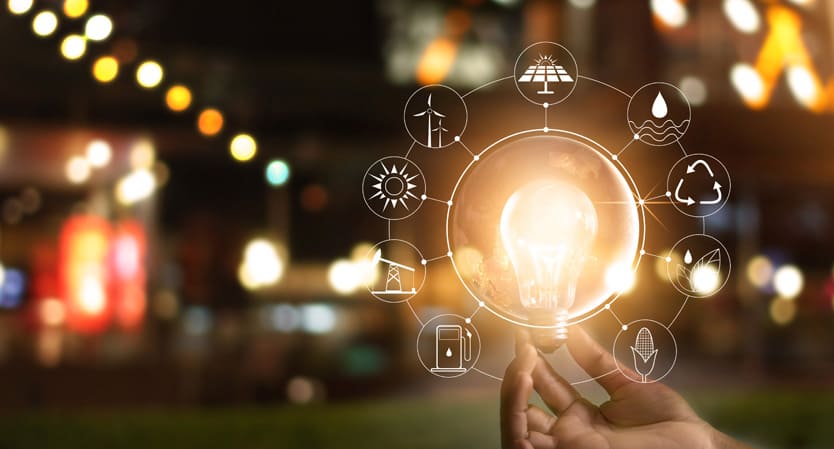
On January 23, 2024, the Ministry of Energy (“SENER”) published in the Official Gazette of the Federation (“DOF”) the “Decree approving and publishing the update to the Strategy for Transition to Promote the Use of Cleaner Technologies and Fuels” (the “Decree”). This is in accordance with the provisions of the Energy Transition Law, which empowers SENER to lead and coordinate the country's energy policy through planning instruments, including a Transition Strategy to Promote the Use of Cleaner Technologies and Fuels (the “Strategy”).
The Strategy is considered the guiding instrument for the national long-term (30 year) and medium-term (15 year) energy policy through triennial updates. It must: (i) establish the country's goals for clean energy and energy efficiency, (ii) diagnose the state of the national energy industry, including social, safety, economic, and environmental aspects, and (iii) propose solutions to identified problems and achieve defined goals. This is in line with international goals and commitments on climate change.
The first version of the Strategy was published in 2016, and the second update took place in 2020. In accordance with the triennial obligation to update the Strategy, the Agreement was published in the Official Gazette of the Federation on January 23, 2024.
In terms of environmental sustainability, the primary goal of the Strategy is to promote the sustainable use of Clean Energies and the electric industry in the medium and long term. The Strategy aims to set goals and a roadmap for their implementation, promote the reduction of Greenhouse Gas (“GHG”) emissions originating from the Electric Industry, and reduce, under economic viability criteria, dependence on fossil fuels as the primary source of energy. This is while maintaining the competitiveness of productive sectors to reduce the impact of climate change, in accordance with the levels and objectives established in the General Law on Climate Change. These efforts are part of national initiatives to meet the goals and commitments of the 2030 Agenda and the Global Compact.
The Agreement acknowledges that the implementation and evaluation of public policies ensuring conducive regulatory frameworks to achieve the goals are crucial, a situation that has not been adequately addressed by the current administration. It is also recognized that it is essential to identify obstacles to the full and complete development of clean energies to promote energy generation from solar and/or wind sources. This involves driving and regulating various technological advancements, such as electrical energy storage, smart grids, and alternative energy sources. In fact, the Agreement states that there are currently various obstacles to the full and complete development of clean energies, including economic factors (technology costs), technical factors (energy production efficiency), regulatory factors (market and electrical dispatch, grid connection), social factors (land use), and even other environmental factors, such as changes in ecosystems and biodiversity loss.
Likewise, the following action lines are recognized regarding the country's main activities to achieve the proposed medium and long-term goals to transition to a sustainable energy sector through energy savings and efficient use:
1. Transportation:
2. Industry:
3. Buildings:
4. Municipal Public Services:
5. Agroindustry:
In the realm of Clean Energies, the Agreement establishes the following action lines:
|
2024 |
2033 |
2050 |
|
35% of total electricity generation from clean energies. |
39.9% of total electricity generation from clean energies. |
50% of total electricity generation from clean energies. |
In conclusion, the climate crisis represents one of the greatest challenges humanity faces and will face in the future. It is also a reality that regulatory progress has been slow but constant. Therefore, the wave of climate justice will gradually advance and permeate all sectors and industries. It is better to act with knowledge preventively rather than reactively, jeopardizing the resilience of the business in adapting to the future.
This year marks the beginning of financial and business opportunities for Mexico through the application of sustainable criteria and strategies in the energy sector. Reach out to us, and we can assist you in identifying business opportunities in various sectors, as well as adapting to the changes that will occur during this stage of energy transition throughout the adaptability period to the climate crisis.
Our team of specialists is available to address any questions regarding the Decree and compliance with applicable regulations.
This newsletter was prepared by José Antonio Postigo-Uribe ([email protected]), Georgina Gutiérrez-Barbosa ([email protected]), Max Ernesto Hernández-Ernult ([email protected]), Tania Elizabeth Trejo-Gálvez ([email protected]), José Enrique Cruz-Lozano ([email protected]) and Jesús Alonzo González-Hermosillo ([email protected]).


